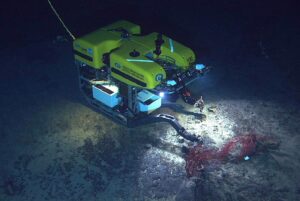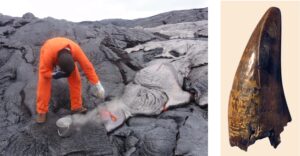Experiments are one way to test some sorts of ideas, but science doesn’t live on experiment alone. There are many other ways to scientifically test ideas too…
What are experiments?
An experiment is a test that involves manipulating some factor in a system in order to see how that affects the outcome. Ideally, experiments also involve controlling as many other factors as possible in order to isolate the cause of the experimental results. Experiments can be simple tests set up in a lab, like rolling a ball down different inclines to see how the angle affects the rolling time. But large-scale experiments can also be performed out in the real world. For example, classic experiments in ecology involved removing a species of barnacles from intertidal rocks on the Scottish coast to see how that would affect other barnacle species over time. But whether they are large- or small-scale, performed in the lab or in the field, and require years or mere milliseconds to complete, experiments are distinguished from other sorts of tests by their reliance on the intentional manipulation of some factors and, ideally, the control of others.

Beyond experiments: Observational studies and natural experiments
Some aspects of the natural world aren’t manipulable, and hence can’t be studied with direct experiments. We simply can’t go back in time and introduce finches to three separate island groups to see how they evolve. We can’t move the planets around to see how their orbits would be altered by a new configuration. And we can’t cause volcanoes to erupt in order to investigate how they affect the ecosystems that surround them. Other times, it would be unethical to perform an experiment – for example, to investigate the effect of maternal alcohol consumption on babies.
In such cases, we can still figure out what expectations a hypothesis generates and make observations to test the idea. For example, we can’t actually experiment on distant stars in order to test ideas about which nuclear reactions occur within them, but we can test those ideas by building sensors that allow us to observe what forms of radiation the stars emit. Similarly, we can’t perform experiments to test ideas about what T. rex ate, but we can test those ideas by making detailed observations of their fossilized teeth and comparing those to the teeth of modern organisms that eat different foods. And of course, many ideas can be tested by both experiment and through straightforward observation. For example, we can test ideas about how chlorofluorocarbons interact with the ozone layer by performing chemical experiments in a lab and through observational studies of the atmosphere.

In some cases, we get lucky and are able to take advantage of a natural experiment. Natural experiments occur when the universe, in a sense, performs an experiment for us — that is, the relevant experimental set-up already exists, and all we have to do is observe the results. For example, researchers in England wanted to know if a program to improve the health and well-being of young children and their families was effective. Enrolling some children in the program and randomly excluding others to create a controlled experiment would be unethical. However, for other reasons, the program was rolled out in some geographic areas, but not in others. This set up a natural experiment that the researchers could take advantage of by comparing outcomes in families who received the program with outcomes in similar families who did not receive the program. Analyzing the results of this natural experiment suggested that the program helped children develop socially, encouraged families to build better learning environments for their kids, and discouraged poor parenting.
Take a sidetrip
To learn how a natural experiment provides support for the theory of general relativity, take an advanced side trip to Illuminating relativity: Experimenting with the stars.
What happens when you can’t do an experiment? There are plenty of other ways to test scientific ideas. To see how observational studies factor into the process of science, check out these stories:
- Here, we’ve talked about the different ways to test scientific ideas with evidence, but what makes a fair test? To learn more, take an advanced side trip to Fair tests: A do-it-yourself guide.
- Visit the Visionlearning website for advanced material on experimentation and other methods of testing scientific ideas, like description, comparison, and modeling.
